I have an array of rectangles called myRects like so:
const
r1 = {x1: 10, x2: 80, y1: 10, y2: 80},
r2 = {x1: 60, x2: 100, y1: 60, y2: 100},
r3 = {x1: 90, x2: 180, y1: 90, y2: 140},
r4 = {x1: 120, x2: 140, y1: 130, y2: 160},
r5 = {x1: 160, x2: 210, y1: 80, y2: 110},
myRects = {r1: r1, r2: r2, r3: r3, r4: r4, r5: r5};
Here's how they look drawn:

I also have a handy function called doRectanglesIntersect(r1, r2):
function doRectanglesIntersect(r1, r2) {
return (r1.x1 <= r2.x2 &&
r2.x1 <= r1.x2 &&
r1.y1 <= r2.y2 &&
r2.y1 <= r1.y2)
}
What I want is a function called recursivelyGetIntersectingRects(rect) which will return an array of rectangles which intersect the given rectangle or its intersected rectangles ad infinitum.
So if I pass r1 into this function I should get [r2,r3,r4,r5] as a return value as they're all connected. I don't mind if this function returns the object literals or the keys, but it should be as efficient as possible and not return duplicate values.
I am able to formulate this problem but a solution escapes me. My mind does not work recursively.
Here's a fiddle I've made which contains the code above and a canvas drawing as a visual aid: http://jsfiddle.net/b3jX6/5/